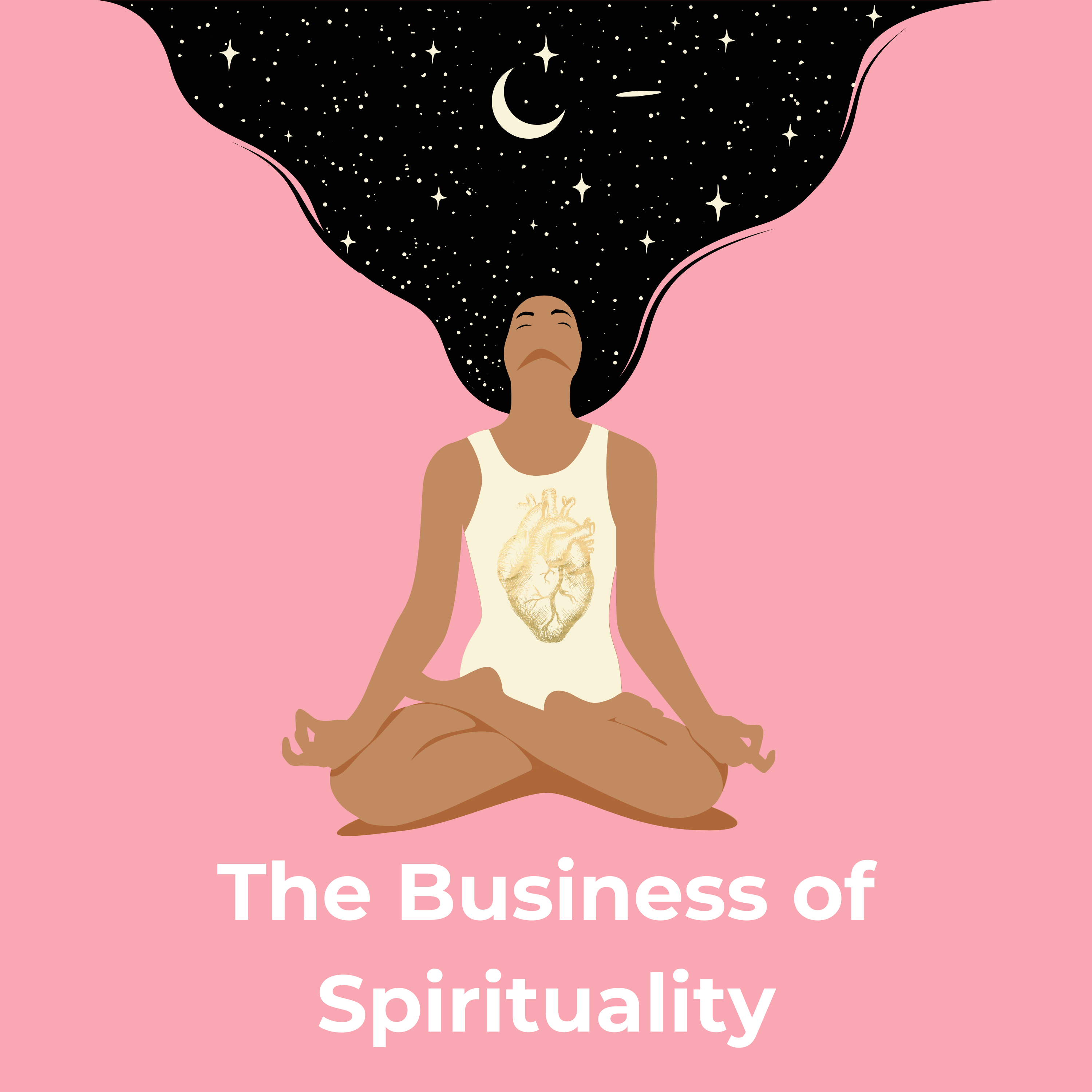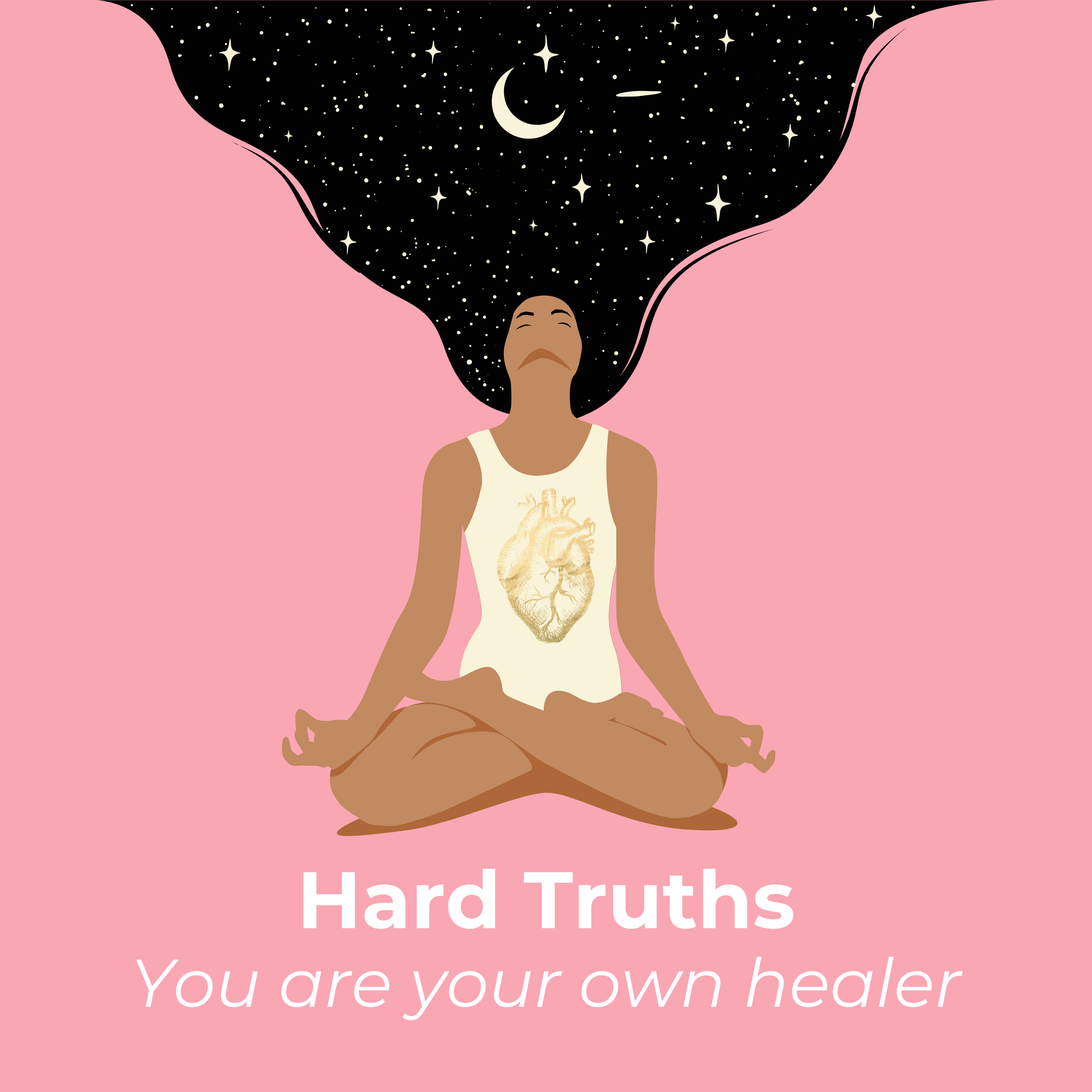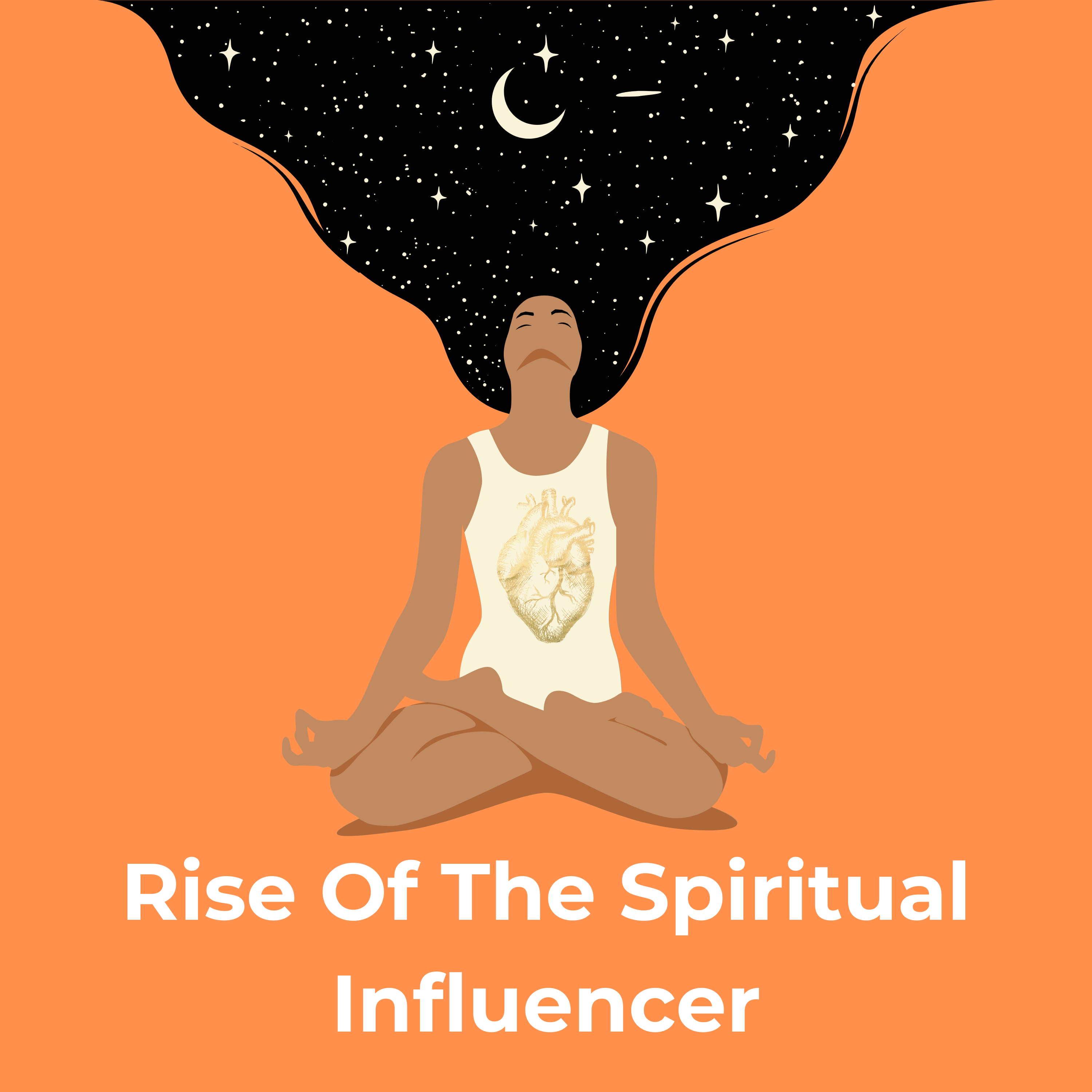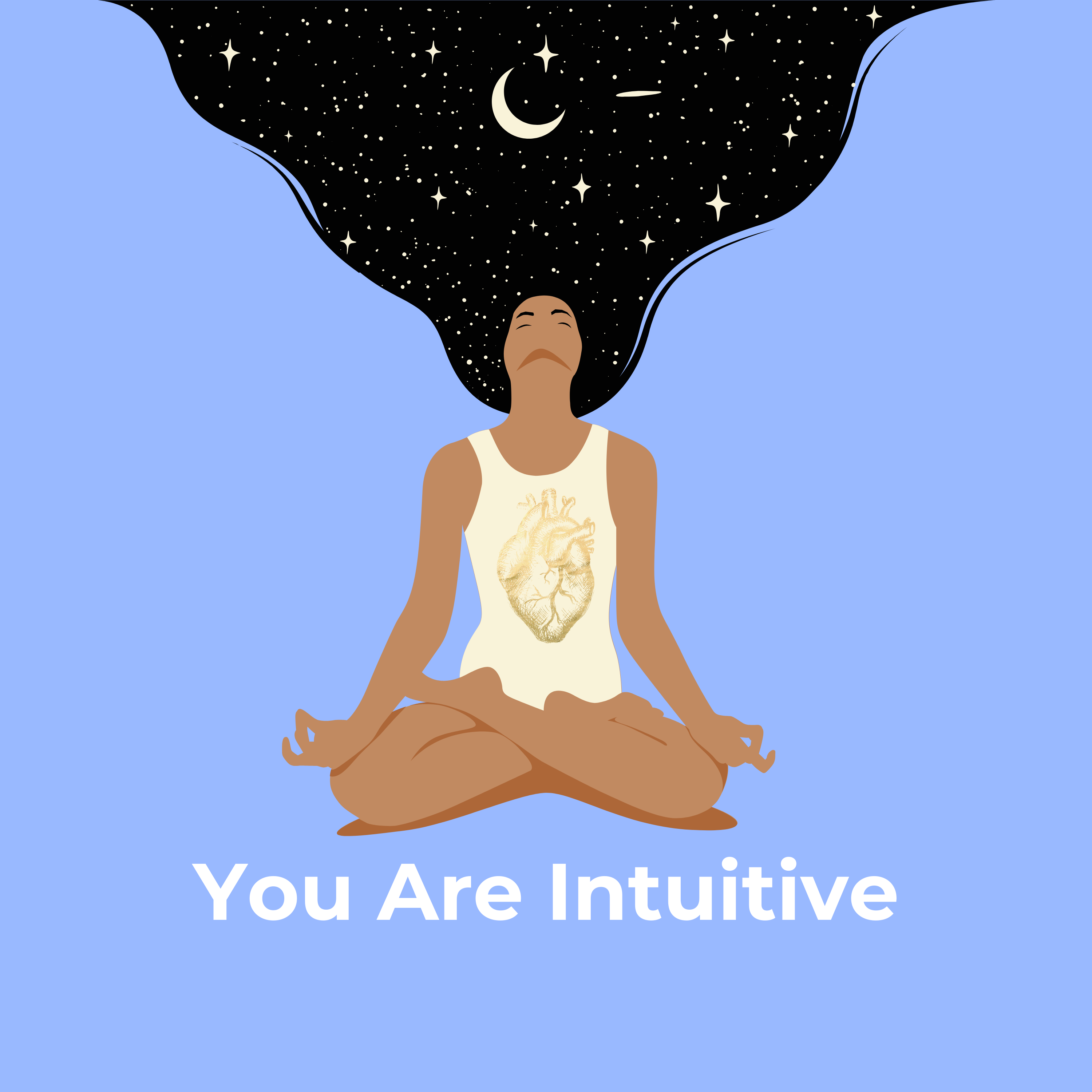Episode Transcript
[00:00:00] Speaker A: The world of healing can be treacherous, but suddenly spiritual aims to provide real, honest, practical, spiritual knowledge and wisdom for the true seekers among us.
The goal is to ignite the divine human within each listener, raising the collective consciousness for our planet. We will challenge your preconceptions, push your buttons and encourage deep reflection. We're not here to adhere to the status quo of what the new age spiritual market wants you to buy into and believe. Consider this your antidote to the woo woo and a place of woo you.
[00:00:54] Speaker B: So, you know, if this was 3000 years ago, I would be an oracle, maybe a delphinian oracle. I'd be an oracle because I'm greek. So I'd be an oracle in a temple somewhere. I wouldn't have to worry about who's going to pay my rent. I wouldn't have to worry about where my next meal was going to come from because guess what? The oracles were revered. It was one of the best jobs, honestly, in the ancient world, to be an oracle or a priestess.
And so the energy exchange, the money exchange, really would be part of the temple. And that's how the culture supported people.
[00:01:29] Speaker C: Who were seers and people who were.
[00:01:32] Speaker B: Philosophers again, Aristotle, Socrates, all of my great great great grandfathers, all of those guys, the community would support them. They were teachers and that's the construct of how their society worked. But today, that's not how it works. And in fact, people who are intuitive and who are seers or healers of some kind, many times they get labeled as woo woo, which is a derogatory term.
And it's so funny. I remember I was working in corporate America at one point in my life for a long time. And I decided that I was going to offer in the office sound healing with sound bowls, like those crystal sound bowls. Maybe some of you have seen them, I think, Sean, I know that you've seen them and worked with them.
[00:02:21] Speaker C: And I remember saying that I had.
[00:02:26] Speaker B: To be woo light, not woo woo all the way, because could I really get mystical in there and start burning sage? I had to create a sage spray because there's fire alarms and, you know, smoke detectors, so I couldn't be smoking up the place with sage and palo santo. So I created a sage spray to spray everyone I had to. And I, again, I hate using this word, I had to dumb it down because the people who I was going to be giving the sound bath to were not as woo woo as I was or am. And I had to woo light it.
[00:03:03] Speaker C: And not woo woo, it's woo.
[00:03:06] Speaker B: You, you. What about you is really the woo.
Now, what has happened recently is that things like sound healing, sound alchemy retreats, these, like, ten day long retreats, are tens of thousands of dollars to attend.
Oh, my gosh. Like, that's insane to me. Or to see a healer. I know of a healer. Well, he calls himself a healer. He calls himself a shaman, which he is not a shaman at all. He's an actor. He was charging people $1,000 for a 1 hour session, which this was maybe five or six years ago. So his prices have increased tremendously from that price point, I'm sure.
And why I mentioned the Oracles was there was a way for them to be taken care of in this construct. We need money. This is how the 3d works. Money is needed in order to pay rent, in order to buy food, clothing, all those things. So I'm not saying that healers should not be paid, though. There are many people who believe that healers should just give away their services.
And my answer to them is, do you expect to go to the doctor and not pay your doctor? Aren't they also healers? Aren't they providing a service to you? So why is it okay to pay doctors, but it's not okay to pay people who are working within the spiritual realm.
And the problem I have is when it gets it, it crosses a line. The line that it crosses is that spirituality becomes a product that is being sold, whether it be a high ticket amount or not. It becomes a product. It becomes divorced from the actual spiritual elements of what it is. It's out of integrity, it's out of alignment. And what is in integrity and in alignment for people? It all varies.
And if you go to a healer and you ask them, hey, your program that is three months is $25,000.
What can I expect to get from this $25,000 program?
If they can't tell you or they give you a lot of convoluted answers, that is really a red flag.
[00:05:30] Speaker D: I can definitely appreciate that advice, having had some friends go through similar things. And one of the things I think the listeners should know is when they do get excited, and we talked about this previously, and you said sometimes it seems like magic. You fall onto something that helps you out tremendously. And of course, the important element is applying it. What advice do you have for the people listening who have gone through something spiritual that has affected them in an amazing way, and they're excited to share with friends, with family, and they get that woo woo, derogatory term thrown at them, and they get dismissed and they inevitably feel bad when that happens, or they'll have a relatives say, they'll use the term woo woo, and they'll say that's, you know, get back in the real world, quote unquote. What advice do you have? Somebody who's gone through that, who's made a change, and then they get slapped with that term, and then they start feeling a little lower and they get discouraged.
[00:06:43] Speaker B: I didn't say that being spiritual was going to be easy or having a spiritual bent. It was going to be easy. And as you further move along in your spiritual development, your friend group will change. You will start attracting other people who are more on your vibration and some of your friends that you've had for many years. I talk about this all the time with my friends, who are all healers at this point of some kind or.
[00:07:12] Speaker C: Another, of friends falling off.
[00:07:15] Speaker B: I was just talking with my beautiful friend Abigail about this yesterday. She's a healer, and she was talking to her friend, who she's known since she was seven.
And the friend just didn't.
Couldn't even join in the conversation of what Abigail had to offer. And I'm finding that with my friends, too. For a while, I was losing friends left and right because they didn't understand that I don't drink alcohol. So because I. Your habits will change as you become more spiritual. And so for me, I haven't had alcohol in five years. It's not because I have a problem with alcohol. It's because alcohol is not compatible with the type of meditation that I engage in. And it breaks my connection to source in a way that I'm not willing to accept. And because alcohol is spirits like the Native Americans call them, spirits for a reason, because you're allowing spirits to enter into your being, into your energy bodies. Who knows what those spirits want with you? And do you really want to be dealing with spirits that are not exactly.
[00:08:23] Speaker C: Of unconditional love and light?
[00:08:25] Speaker B: Do you really want to deal with that? Probably not. So I lost friends, and dating became very challenging because I wasn't drinking alcohol. And even my family, my older sister, I was just with her during the holidays, and she's like, oh, I made a winter punch. I'm like, oh, what does it have in it? She's like, rummage tequila. She's naming all this stuff. I was like, yeah, I love you, but I'm not gonna have any.
[00:08:52] Speaker C: Why not?
[00:08:53] Speaker B: Why not? You're not gonna have any. She was disappointed.
[00:08:56] Speaker C: I said, pamela, I don't drink.
[00:08:57] Speaker B: I don't drink. I haven't drank in years.
She got so irritated with me.
[00:09:02] Speaker C: What you've gained with your spirituality has.
[00:09:06] Speaker B: To get to a point where it far outweighs the judgment and criticism that you're gonna receive from family and friends. And that takes time to build, too. I'm offering you to learn the art of not caring about what other people think about you. It's an art, and it could take many years to learn that. It takes people, you know, a long time to do that, and it's not a perfect. It's a practice of not caring about what other people think. Because ultimately, at the end of the day, you have to live your life, and you will be misunderstood. Just know that you will be misunderstood, and you may be dismissed. If it's not in alignment with a very religious family, for instance, who's like, you just need to come to church on Sunday. You don't need this other stuff. So there's many layers to it.
[00:09:58] Speaker D: So what advice do you have for people that are going through maybe tough times with family, as you mentioned, or feeling lonely, discouraged?
What practical things can they do to push through it?
[00:10:15] Speaker C: I would say that finding community has.
[00:10:19] Speaker B: Been a godsend, and I'm very, very fortunate. I went through a meditation teacher training facilitator program, and it was live, and it was in person, and it was far before the pandemic, and there was a community because it was at a meditation studio. So all the people walking through that door were people who were interested in spirituality. So I was very, very lucky also, when I became Reiki trained in 2012, there were other people in my class, and so I had a community that was already there.
With the online and digital trainings and teachings, it may be more challenging to connect with people who are, you know, within your class or are interested in the things that you're interested in. But I would say finding community is really important.
You know, social media is a cesspool and a portal on unto itself. And you can certainly go on Instagram or TikTok or even just, like, searching the web for things. But I would be very cautious about.
[00:11:25] Speaker C: That because it's typically the loudest voices.
[00:11:28] Speaker B: Not the most ethical voices that are heard on social media when it comes to spirituality and other topics, actually.
So community, finding community.
There's meetup groups that you can look up online, go with an open mind.
[00:11:45] Speaker C: And then use your discernment.
[00:11:48] Speaker B: Intuition is key, I tell you. Intuition, like building your intuitive muscle and really listening to it, not just dismissing it. Everyone has intuition. It's a muscle. You can build and strengthen by continuously listening to it, listening to it and using it. So using your intuition, when you go to these meetup groups, when you even enter into scrolling on Instagram or TikTok, use discernment.
Find those people who inspire you, who light you up, where you want to learn more. They talk about a modality, and you find yourself googling everything that they said, find those people. And then there's always communities around that. But again, be very cautious. I'm not trying to scare anyone, but just be very cautious with what communities you're joining.
[00:12:39] Speaker C: Because there are communities which are high.
[00:12:45] Speaker B: Control groups, which are also known as cults. Those things are out there, and no cult at its face is bad. I'm not saying that either, because basically a cult is any group of people who has a leader and aligns themselves with a specific belief system. That's what a cult is. I'm not saying that cults are bad. Some are and some are not. So really using your discernment and seeing how makes you feel when you're in the presence of those people that are in that community, even online, how do you feel when you're online speaking with these people?
[00:13:21] Speaker D: I know for me, on my journey, the biggest thing that propelled me the furthest forward was realizing I needed to increase my self awareness and realizing how low it was and how to operate in this quote unquote, world capitalism.
It's value to not be that self aware just enough to do what needs to be done.
And I found that increasing that self awareness is leading me to listening to my intuition much more. And for me, it's looking back. It's never been wrong if I listen to it.
And when people are looking to a spiritual healer of some kind, and I found this too. So maybe you can help me with this. I completely understand what you're talking about as far as the capitalism. They're selling a widget. Here's the thing we're selling, and you can see it's itemized. And definitely there's a guarantee. I'm a little bit weary, but then you have the other side where maybe someone's a little bit too general, or too, for lack of a better word, soft.
And I know there's a balance there.
What advice do you have for people who know they're a little bit more spiritual and they're looking at this and they're seeing these prices, and they're trying to figure out what should they do? What should they not do? This one's really specific. Give me guarantees.
[00:14:59] Speaker A: This one's a little bit too general.
[00:15:03] Speaker D: How do they figure out which one to put their energy into? Aside from obviously listening to their intuition and working on that, like I did advice to figure out which one to go to.
[00:15:17] Speaker B: I'm always wary when guarantees are given when it comes to spirit, anything having.
[00:15:22] Speaker C: To do with spirituality, because that is.
[00:15:26] Speaker B: Such a personal thing and it's really dependent on how much work the person puts into the modalities that they do learn. So you can learn something that has.
[00:15:38] Speaker C: All of these guarantees, but what if.
[00:15:41] Speaker B: You don't use it? What if you don't integrate that knowledge? Then the guarantees are all for naught. The same thing with something even more, you know, general. Say if you learn something, you purchased a program that was very general and you applied everything that was taught to you. Well, it's like, how do you discern?
It really depends on you.
Guarantees are one thing that I don't put on, you know, any kind of programmer I do or any kind of healing that I do, it really depends on the person. So how much work are you willing to put in no matter what you learn? And you could always ask that particular healer, you know, your program is very, very general.
What can I learn and how would I be able to apply it in my everyday life? Ask those questions. Ask that even of the specific, the people who have very specific programs, ask them. You said that in 90 days I would find my twin flame, which there was a program. There is currently a program. Well, it's not a program. It's a whole. It's a whole group. They believe that they can find your twin flame within a certain, I think it's like 90 days. They have a whole program. It's very expensive. They made a documentary about them on, I think it's on Amazon prime.
And they were very adamant that they could find people's twin flame.
And they had all these guarantees and it was all garbage. It was all garbage. And they were charging tens of hundreds of thousands of dollars to people and damaging people in the process. So you need to ask people, how am I practically going to apply this in my life?
What is this course like? Can you give me an example of someone else who's taken this course? Oh, you can't? Okay, that's fine.
[00:17:41] Speaker C: Well, here is what I'm working with.
[00:17:44] Speaker B: How would this course benefit me? So asking those questions and not being afraid to ask those questions, if you find that you're fearful of asking a question because you feel you may offend someone, again, that's information, too.
And I really like the self awareness piece that you talked about a little bit earlier.
[00:18:05] Speaker C: Sean, self awareness is key.
[00:18:08] Speaker B: And not looking externally for the answers, because at the end of the day, you are a sovereign being, and you have agency over your life, and it's up to you to determine where your life goes externally, looking at answers and putting all of all your eggs in that basket, the external basket is going to leave you very depleted, emotionally, financially, spiritually, mentally. And it potentially can be very dangerous if you're externalizing all of your agency outside of you. It's really dangerous, actually.
[00:18:48] Speaker D: And I've found intuitively, if I'm starting to interact with somebody and they're too transactional, you know, if they're focusing on the money and that sort of thing, my back gets straight and I kind of think, is this person gonna benefit me? And more often than not, it turns out to be correct.



